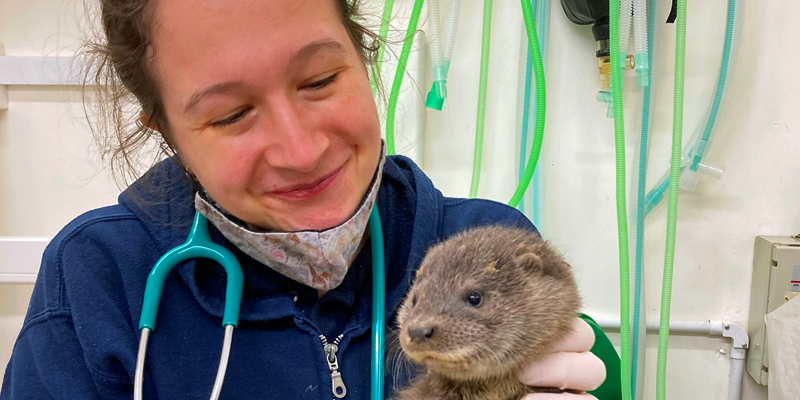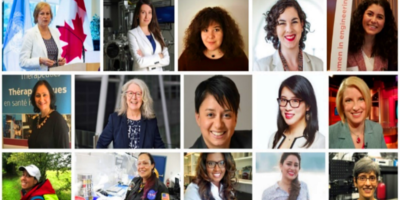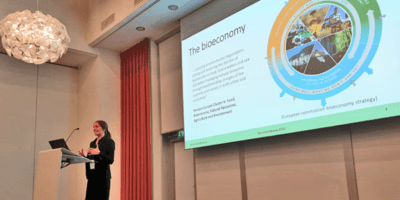Sophie Common is a wildlife vet within the Disease Risk Analysis and Health Surveillance team at the Zoological Society of London, and she will be a speaker at Soapbox Science London. In her Soapbox talk, she introduces the topic of conservation and ‘rewilding’. The title of her talk is “How to maximise wild animal health during translocations”, and it will take place at 4pm on Saturday 28th May 2022 at Queen’s Stone, Riverside Walkway (by Gabriel’s Wharf), South Bank, London, SE1 9PP.
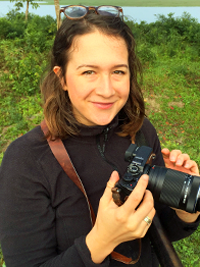
“I am so passionate that women and girls feel that they can get into science and that it’s not just a job for men.”
Going wild: Using my veterinary skills to positively impact wildlife and conservation
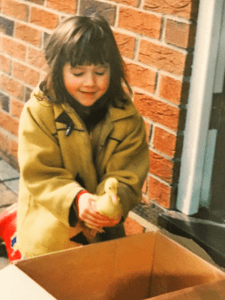
I have always loved animals, wildlife and nature and decided to pursue a career as a vet. I worked hard for my GCSEs and A-levels, and I was accepted to study veterinary medicine at the Royal Veterinary College (RVC) in London.
The course was very intense, but I learned a lot and was able to start tailoring my experience toward wildlife through clinical rotations and work experience. After graduating, I immediately began working in a small animal practice, where I stayed for two years. I was keen to get involved with wildlife in some way and so got in contact with a local wildlife rehabilitation centre to see whether there were any opportunities for volunteering.
I ended up spending days off from my job carrying out vet work for them as a volunteer. They were amazing and I absolutely loved every second I spent there so I made the decision that I wanted to work hard to make wildlife my career.
I applied and was accepted to undertake a master’s degree, run jointly by the RVC and the Zoological Society specifically for vets, called ‘Wild Animal Health’. The course was amazing and taught me so much about conservation, wildlife and nature. This enabled me to explore my passions to find a niche where I could use my veterinary skills to positively impact wildlife and conservation. I was (and still am!) particularly interested in how disease can impact populations and the conservation status of species and wanted to explore this further.
Don’t forget the elephants
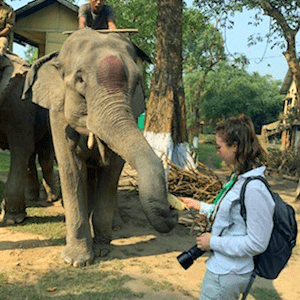
My favourite animals are elephants and, during my MSc, I was able to develop a research project looking into a new method of detection of elephant endotheliotropic herpesvirus (EEHV) in Asian elephants in Thailand. I was awarded a grant for just over £6000 to develop the project and I subsequently published the work and presented it at conferences in Europe and India.
After completing the MSc, I got a part time job as a wildlife vet in a busy wildlife hospital in Cheshire. Soon after, I was able to fill the rest of my week with another part time job at ZSL working as a wildlife vet and research associate within the Disease Risk Analysis and Health Surveillance (DRAHS) team.
Both jobs complemented each other brilliantly, and I’ve able to work clinically to treat and release wildlife species including otters, seals, hedgehogs, birds of prey and many more, alongside a more research-orientated approach to conservation translocations and considering diseases, health and welfare of species before, during and after translocations.
Currently, I’m employed in a full time role in DRAHS working partially on research and partially for species conservation programmes, particularly with beavers, which I’ll be talking about in my Soapbox Science talk!
Conservation in action
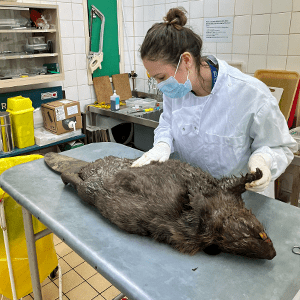
Day to day, my work can vary considerably depending on the time of year and the project. If a beaver is found dead in England, I perform a post-mortem examination to gather as much information as possible from the carcass. This information helps us to build a picture of what parasites the beavers carry, and whether they have been exposed to any potentially harmful pathogens in the past along with giving us a general idea of what risks are posed to introduced beavers.
For other projects, I am involved in planning for active translocations (where native species are reintroduced to a particular area), which can include undertaking health examinations of animals prior to transport or release. Other work can be desk-based research such as writing full ‘disease risk analyses’ to assess and suggest mitigation for risks associated with conservation interventions.
I have been very lucky that COVID-19 has not hugely impacted my work. Desk-based work has continued from home, and I have been able to continue practical work with PPE and health and safety measures.
Proving him wrong: Overcoming gender stereotypes
I learned about Soapbox Science through an email sent around at work. I was very interested and passionate about the cause because as a young woman in science I did feel I had to overcome stereotypes to progress in my career.
I always remember that a teacher at school advised me that I would not be able to achieve a grade ‘A’ in chemistry A-level and so not to try, even though I had been achieving the highest grades in the class. It dawned on me that perhaps gender had played a role in his opinions as several male classmates were predicted to get an ‘A’ grade by him.
I was determined to prove him wrong and show that women and girls can do science too! Luckily, with much hard work, I made the grade and was able to begin my career in science.
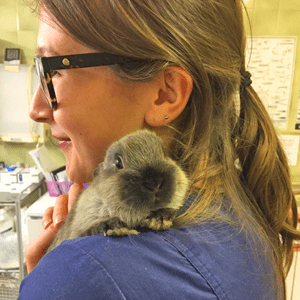
My Soapbox Science talk
In my Soapbox Science talk, I am going to introduce the topic of conservation and rewilding, using the beaver as an example. I plan to include a section where children (and adults!) can learn how to undertake a health check of a wild animal and gather information that could help with their conservation in the long run.
I’ll explain why it’s so important that we undertake disease screening and surveillance and also why species like beavers can do brilliant things for our ecosystem!
Making a difference by sharing my experience and ideas
I hope that I can continue to apply my research in a practical capacity to positively impact wild animals, conservation and nature going forward.
You can keep up to date with my latest research by following my ResearchGate profile or following my work on Twitter. You can also find out more about the work undertaken by the DRAHS team here.
I’m incredibly nervous (and excited!) about taking part in Soapbox Science, but I hope that I will inspire at least one person to get involved in conservation and wildlife! I don’t know where my career will take me next but I’m excited to wait and see!

